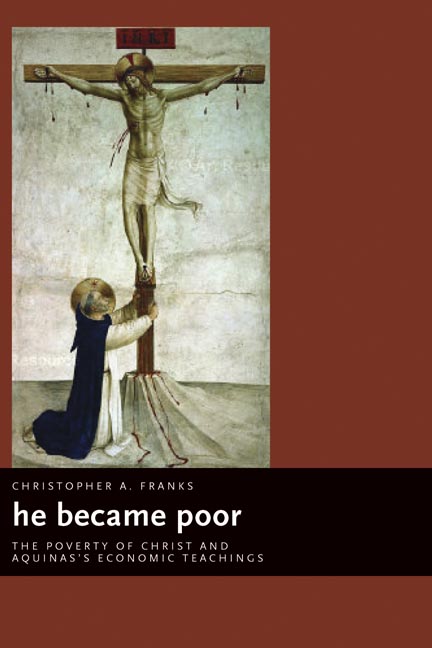Drawing deeply on the views of Thomas Aquinas, He Became Poor challenges the modern economic tendency toward the "proprietary self" and calls for a renewed appreciation of the vir
Drawing deeply on the views of Thomas Aquinas, He Became Poor challenges the modern economic tendency toward the "proprietary self" and calls for a renewed appreciation of the virtues of trusting receptivity and humble awareness of our membership in a larger benevolent order. Christopher Franks reveals how the summons to become poor bestows a new intelligibility on formerly obscure economic teachings. In the course of his discussion Franks juxtaposes Aquinas with Aristotle, John Locke, and Alasdair MacIntyre.
This book makes a provocative case for taking Aquinas's thoughts on economics more seriously and illustrates how the very market conditions of the modern world cloud any attempt to fully understand Aquinas. Franks offers a convincing argument that questioning market-formed assumptions can actually help us recover the evangelical character of Aquinas's ethics.
Reinhard Hütter,
— Duke Divinity School
"With a style as lucid as it is engaging, Christopher Franks probes by way of an astute interpretation of Aquinas's economic teachings an old revolutionary proposal — Christian poverty. This Christ-configured 'economics' is surpassingly relevant as global capitalism is faced with a cataclysmic collapse. The greatest praise I can give this book is that its author has learned much from Dominicans past and present — not least from Thomas Aquinas — so much indeed that He Became Poor is suffused with the true spirit of Dominican poverty. We have much to learn from this important work."
View Review quote
